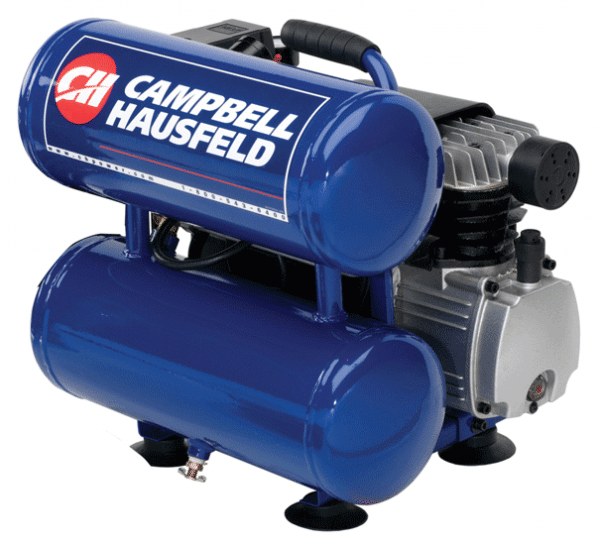I have a Campbell Hausfeld twin tank 4 gallon 3 horsepower compressor. It’s model wl506206aj. I have been having trouble with it lately chugging for maybe a second then just humming when plugged into any 15 amp circuit.
It always worked fine on 15 amp circuits previously.
If I plug into a 20 amp circuit, it’s fine. I tried replacing the start capacitor but that didn’t help. I had the motor inspected today by a motor service company and they checked everything and said the motor is fine.
Once the tanks reach the full load, you can hear the unloader switch vent off air for a second or two then stops. I also changed the air filter and that didn’t help. There is no air leaking sounds so I don’t think it’s the check valve, but the only things I can think of now is either the check valve or unloader switch. Any ideas? Don’t want to keep wasting money on parts that are not broken. Thx. George.

George, I wish that you had uploaded a photo as I was unable to actually see what the Model wl506206aj looks like. I know CH Power had a manual up on their site at one time, but it’s been removed, I guess due to the age of this machine, circa 2005 or so.
That the wl506206aj works OK on a 20 amp circuit suggests to me that the issue is electrical.
As compressor parts age, they don’t work quite as well, or as easily. The mechanical wear and changes increases the load o the motor, and I believe is the reason the compressor motor is not working so well on a 15 amp breaker. The logical solution is to power the compressor with a 20 amp breaker. I would think that the problem is an aging electrical motor or a failing, but not yet failed, run capacitor if the start capacitor checks out.
The motor shop said it was fine and they had it hooked up to meters? They also said both capacitors were fine?
They did witness the same issue I have been having while it was there though (several times). They ran the motor and unplugged it (didn’t use switch) and many times it chugged for a second then just hummed. They said that the amp meter spiked way up during this. They said that it is something mechanical. Most of the time they turned it on/off it ran as it should, and they said the motor sounded good. Is there any way to definitely rule out a bad check valve, unloader switch, or even the compressor part? Thx
I cannot refute what the motor shop says, George.
If they say the motor and the caps are fine, no way I can argue with that. The compressor symptoms can be a reflection of binding in the pump, adding load to the motor, and preventing if from starting. That increased load could account for the spike in amps.
If you disconnect the line from the top of the pump, the one that goes into the tank,then your compressor will run without any backload from the tank, or from the tank check valve. If the motor starts repeatedly and with no problem, then that would suggest it’s not the pump, but another component.
You can check the tank check valve by emptying the tank, removing the check valve, and seeing if it actually does allow air flow in only one direction by blowing through it.
Opening that line will also remove the unloader valve from the equation, as any air trapped over the piston will empty when you break that line.
Last… the specs suggest this is a 3 HP motor. Is it? If so, know that if the start capacitor is even a little bit weak, the compressor will exhibit the symptoms your is.
A 115 volt electric motor may consume 16 amps of power on start… meaning that a 3 HP will draw a lot more amperage than a 15 amp circuit can provide. If the start cap isn’t delivering full power, that’s cause the problem, and that may suggest why the compressor works better on a 20 amp circuit. (.engineeringtoolbox.com/elctrical-motor-full-load-current-d_1499.html)
